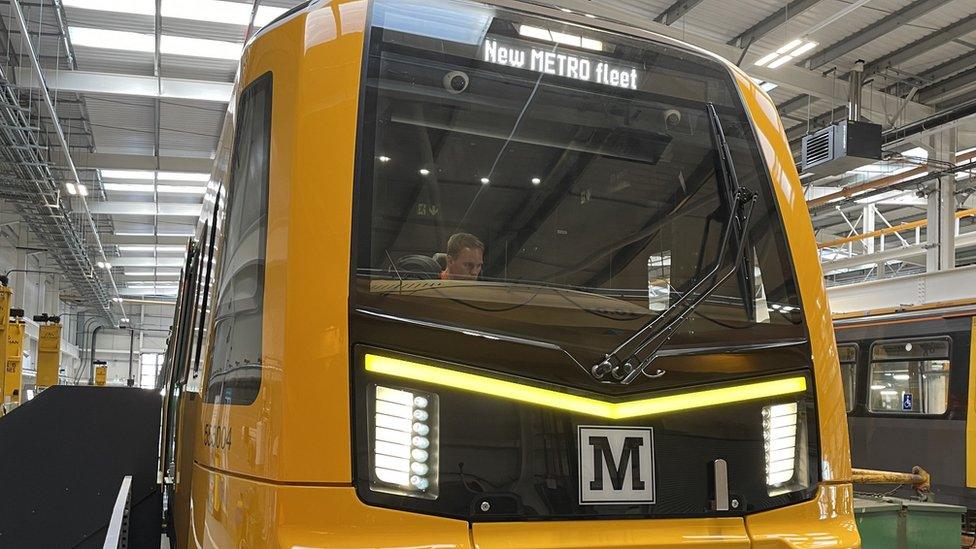Tyne and Wear Metro warns of 'difficult winter' with old trains
- Published
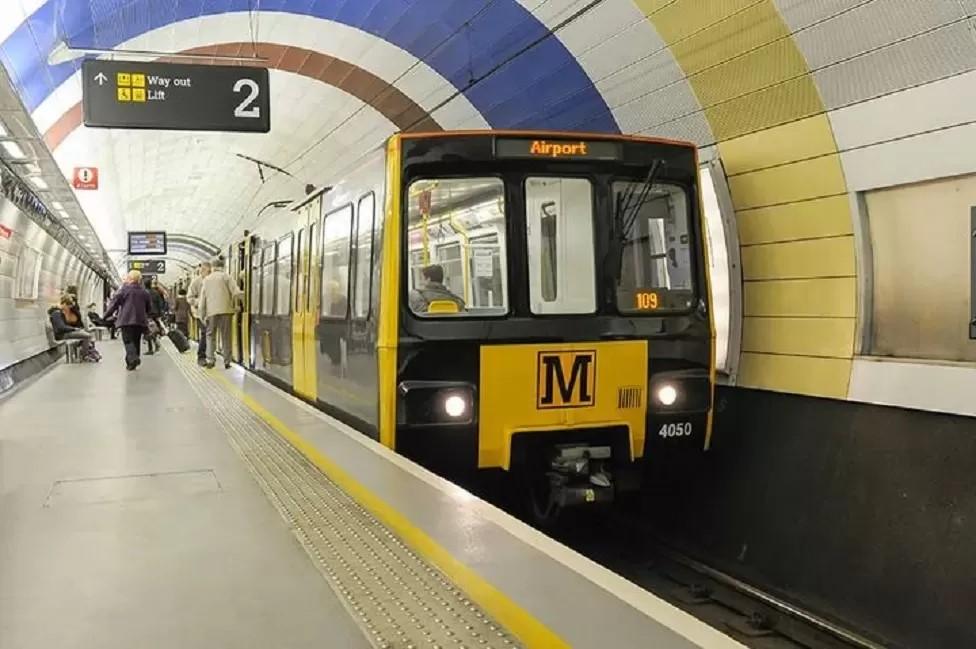
The existing fleet of trains is more than 40 years old
Metro passengers have been braced for a "difficult winter" amid further problems with the aging fleet.
Five trains were out of service on Thursday after developing faults.
Operator Nexus said because they were more than 40 years old some parts could no longer be bought and were being refurbished inhouse at its depot.
It said there was a plan to "beef up" maintenance regimes so the system could keep running during the colder weather, before new trains arrive in 2024.
Nexus is due to replace its stock with 46 new Swiss-built models, which cost £362m.
The first was due to enter service by the end of 2023 but said further tests and training were needed to ensure they operated properly across the Tyne and Wear service.
The operator apologised on Thursday morning after five Metro trains were withdrawn.
"If you bought a car in 1975 and you were still running it today doing hundreds of miles it will problematic to keep it in good working order," spokesman David Punton told BBC Radio Newcastle's Breakfast with Matt Bailey.
"That's pretty similar to what we have got at the moment.
"We are finding is a greater frequency of faults on the trains and we are working around the clock to rectify them when they occur."
He said as the trains were built in the early to mid-1970s at a factory in Birmingham and many of the parts needed were now "obsolete".
"For example, something like traction motors on the trains we have to refurbish those because we can't buy them anymore," he added.
"That is a never-ending cycle of repairs - there are parts of the trains that we can't get anymore which is why we are getting new ones."
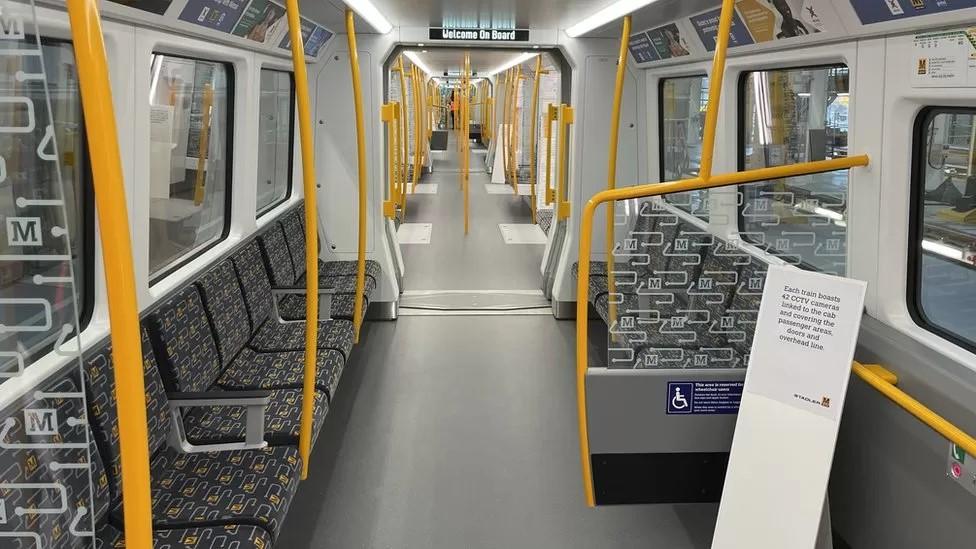
The new Metro trains feature more space and linear seating
Asked about the colder months, Mr Punton said it could be "a difficult winter" and transport bosses were "expecting a few problems" because the trains were "temperamental" in the cold.
He said a "winterisation plan" was being brought forward to help keep them in service through the "very coldest weeks of winter".
It is hoped the first of the new trains will be in "full customer service" early next year. They are currently being tested on the system overnight.
"We appreciate people are disappointed it won't be this year," he added.
"Ultimately these trains are absolutely fantastic, they are transformative, they are going to transform reliability and comfort.
"We just need to get it absolutely right - we don't want to put it into service until it's ready."

Follow BBC North East & Cumbria on Facebook, external, X (formerly Twitter), , externaland Instagram, external. Send your story ideas to northeastandcumbria@bbc.co.uk, external.
- Published14 September 2023
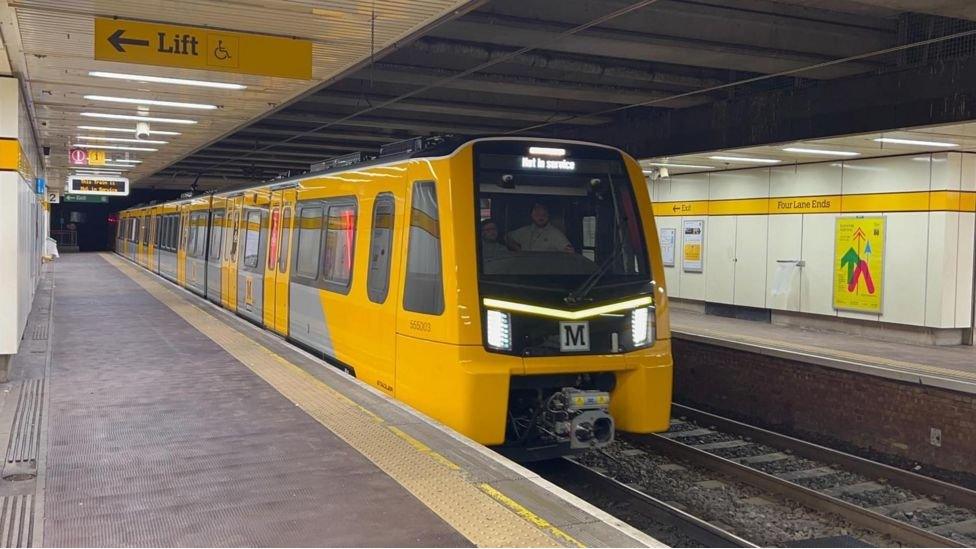
- Published15 March 2023
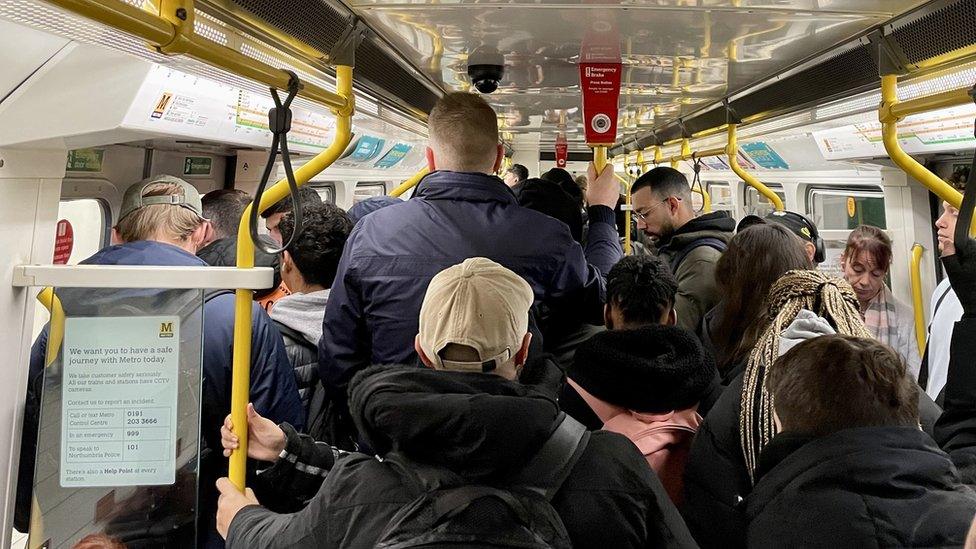
- Published17 March 2023
